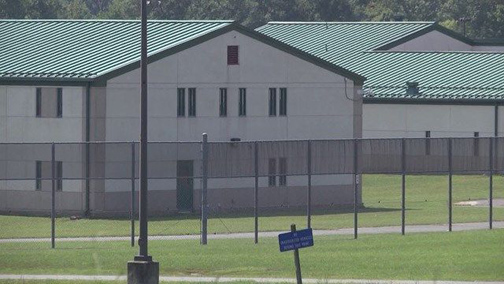By Heather Michon, Correspondent
The longstanding crisis of medical care at Fluvanna Correctional Center for Women (FCCW) was the subject of a lengthy hearing in federal court in Charlottesville last week, the latest chapter in ongoing litigation between prisoners and state officials to improve care at the facility.
Representatives for the prisoners filed the contempt of court motion in September 2017, less than two months after two inmates died at the prison within a few days of each other last summer.
They argue that the deaths, along with others in the past two years, show the prison is not fulfilling the requirements set out in the 2016 settlement agreement between the two parties.
U.S. District Judge Norman K. Moon heard from witnesses on all sides of the issue over four days of hearings, including vivid testimony regarding the death of Deanna Niece, a 38-year-old inmate with who collapsed in her cell last July.
Niece’s cellmate, Rachel McCracken, testified that Niece, who had serious pre-existing medical conditions, had suffered breathing problems during the day on July 25, but was dismissed by medical staff.
Later that night, McCracken heard Niece “gurgling” and found her unconscious and unresponsive in her bed, according to media reports.
After pressing the emergency call button and alerting a guard, McCracken said two nurses came “casually walking in” and eventually began CPR.
Neither the nurses nor EMTs were able to revive Niece.
“I was devastated,” said McCracken, according to media reports.
The cause of death was given as a pulmonary embolism. Niece was less than three weeks from her scheduled release.
Lawyers from the Legal Aid Justice Center, which has been representing the plaintiffs for the past several years, introduced expert testimony from Jackie Clark, a registered nurse who now serves as correctional health director for Los Angeles County, which has the country’s largest jail systems.
Clark said her inspection of the medical facility found serious understaffing, particularly on overnight shifts. Medicines were haphazardly arranged and sanitary conditions were poor.
Witnesses for the Department of Corrections and Armour Correctional Healthcare, the company that provides medical services for the prison, said conditions had in fact improved since 2016, and blamed some of the staffing issues on the bad publicity surrounding the case.
“There is a recruitment issue, and that’s due to the negative publicity from the [consent order] and we’ve had to overcome the negative word-of-mouth between nurses,” testified Patricia Katzman, the facility’s director of nursing, according to media reports. “We had a quite a few nurses turn us down who said it was because of what they saw on the news.”
Several officials testified they’ve had to pay “emergency” wages and bonuses to find and retain nursing staff.
“You’re blaming the plaintiff’s lawyers for bringing the suit, but if they hadn’t brought the suit then what would have happened?” Moon told lawyers at one point during testimony, according to media reports. “You keep saying that bad publicity is giving you a bad reputation, but you wouldn’t have that reputation if you were doing things properly.”
Moon has not yet issued a ruling in the case, and no date for a ruling has been set. Lawyers will first have to submit briefs supporting their arguments.
He also said he might personally tour the prison medical facility. “Any time you can see what you’ve been hearing about, it gives you more insight,” he said, according to media reports.
If he finds for the plaintiffs, the state could face civil contempt charges and fines.
This article is based on reports from the Daily Progress, the Times Dispatch, and NBC29.





